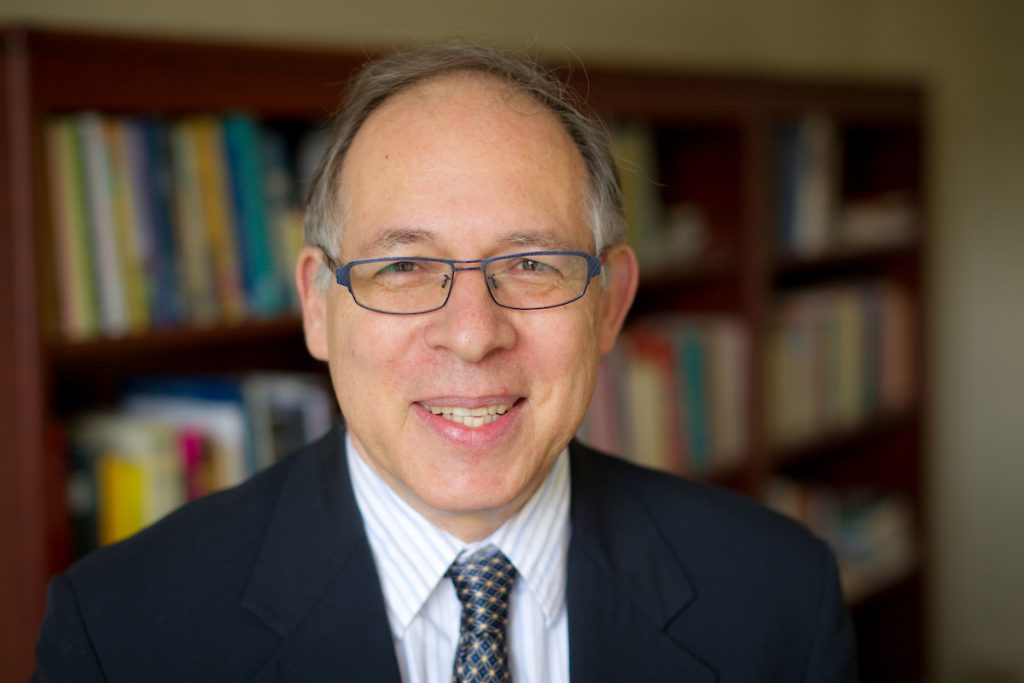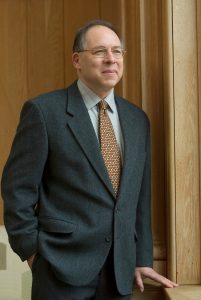Teacher-Scholar Legacies: Luis Roniger

By Peter Siavelis, Professor of Politics and International Affairs
The term endowed professor often conjures the notion of an insular scholar dedicated to research and publication first and their students as an afterthought. And yet, throughout his 40-year career — 17 of which he held as the Reynolds Professor of Latin American and Latinx Studies and with a joint appointment in the Department of Politics and International Affairs — Luis Roniger showed that prodigious and rigorous scholarship could be balanced with a deep and personal commitment to students and service to his department, university community, and profession.
In Professor Roniger’s decades-long research career, he moved from studying clientelism to researching legacies of authoritarianism and political exile, shifting frontiers of citizenship, human rights, and populism. Most recently, his scholarship has focused on transnational politics and conspiracy theories. With 25 books and almost 200 articles and book chapters under his name, he is among the most prolific authors in the history of Wake Forest University. These publications, as well as his ability to engage with sociologists, anthropologists, and historians, have brought him international acclaim as a rigorous and respected intellectual whose visionary work straddles social science disciplines — a feat accomplished by few scholars.
While a quintessential intellectual, he also embodies the Wake Forest teacher-scholar ideal. When asked what constituted a “good day” for him at Wake Forest, Roniger replied: “Whenever I could inspire students. Whenever we had an enthusiastic class discussion in which students expressed their own and diverse opinions, exchanged ideas, and devoted earnest thought to the issues under discussion, whether the class was on political exile, comparative citizenship, transnational politics, populism, or conspiracy theories. Inspiring students and bringing them to think reflexively beyond their inherited premises, beyond what they took for granted, made my day.”

This commitment to moving the minds and hearts of students is evident in what students say about Professor Roniger. Former student Alex Estrada noted: “Professor Luis Roniger is the ideal embodiment of a teacher and thinker. To his colleagues, he is a brilliant scholar with astounding intellectual range. To his students, he is a caring and engaged mentor who gives generously of his time and wisdom drawn from a life well lived. To me, he was a friend who offered insight when I was confused and confidence where I felt doubt. From my very first class of college (his luminous Human Rights seminar) to my final assignment as his research assistant four years later, Dr. Roniger has had an abiding impact on my intellectual, professional, and personal growth that I know will be felt for years to come. Gracias por todo, il miglior fabbro.”
“With 25 books and almost 200 articles and book chapters under his name, he is among the most prolific authors in the history of Wake Forest University. These publications, as well as his ability to engage with sociologists, anthropologists, and historians, have brought him international acclaim as a rigorous and respected intellectual whose visionary work straddles social science disciplines — a feat accomplished by few scholars.”
Peter Siavelis, Professor of Politics and International Affairs
Meenu Krishnan, another former student, shared how Professor Roniger’s interdisciplinary approach impacted her own studies: “My first impression of Dr. Roniger — of a rigorous polymath — would prove to be exactly right. Over the course of the semester, Dr. Roniger exposed us to so many texts and ways of thinking that shape the body politic: sociology, philosophy, political theory, and the arts, just to name a few. I wrote a paper for Dr. Roniger on intellectual and artist exiles during the Southern Cone authoritarian regimes. Because of his feedback and engagement on that paper, this theme became an enduring interest and intellectual project for me, eventually informing my master’s thesis at the University of Cambridge and a Fulbright research project in Spain on another group of exiles: the Romani. I cannot imagine that any of this would have been possible without Dr. Roniger’s unwavering dedication to intellectual rigor, to prod his students to think critically and question accepted texts and theories, and to model so generously what it means to be a professor who does work in the world. Without Dr. Roniger’s shining example, I know I would not have let myself be and explore so many things. I am eternally grateful to him.”
Professor Roniger is also a beloved colleague and loyal servant to the Latin American and Latinx Studies Program, the Department of Politics and International Affairs, the university, and the profession, as evinced when asked about his most impactful memory from Wake Forest. His reply: “The joy of feeling the collegiality and goodwill of everybody on campus, starting with my colleagues at the Department of Politics and International Affairs who welcomed me — a comparative political sociologist — graciously into their midst. Likewise, the colleagues at the Latin American and Latinx Studies program that I directed for a while; the Dean’s Office, the Office of Global Programs; and last, but not least, the professional and amazing support by the staff at the Z. Smith Reynolds Library.”
Professors retire, but intellectuals do not. As he enters the season of retirement, Roniger is committed to continuing his pace of scholarly contributions — after, he acknowledges, a brief break to “rest for a while, enjoy family, and continue maintaining an active life agenda.”
“It is my vision,” he said, “that we academics have been privileged to do what we love and that, accordingly, we owe a debt of gratitude and should contribute to humanity while instilling a profound respect for human rights and diversity. That means we should contribute to human knowledge to the best of our ability. Accomplishing that goal gives me a rewarding feeling of having had a well-lived life.”
“Dr. Roniger’s unwavering dedication to intellectual rigor, to prod his students to think critically and question accepted texts and theories, and to model so generously what it means to be a professor who does work in the world. Without Dr. Roniger’s shining example, I know I would not have let myself be and explore so many things. I am eternally grateful to him.”
Meenu Krishnan, former student and Fulbright scholar

